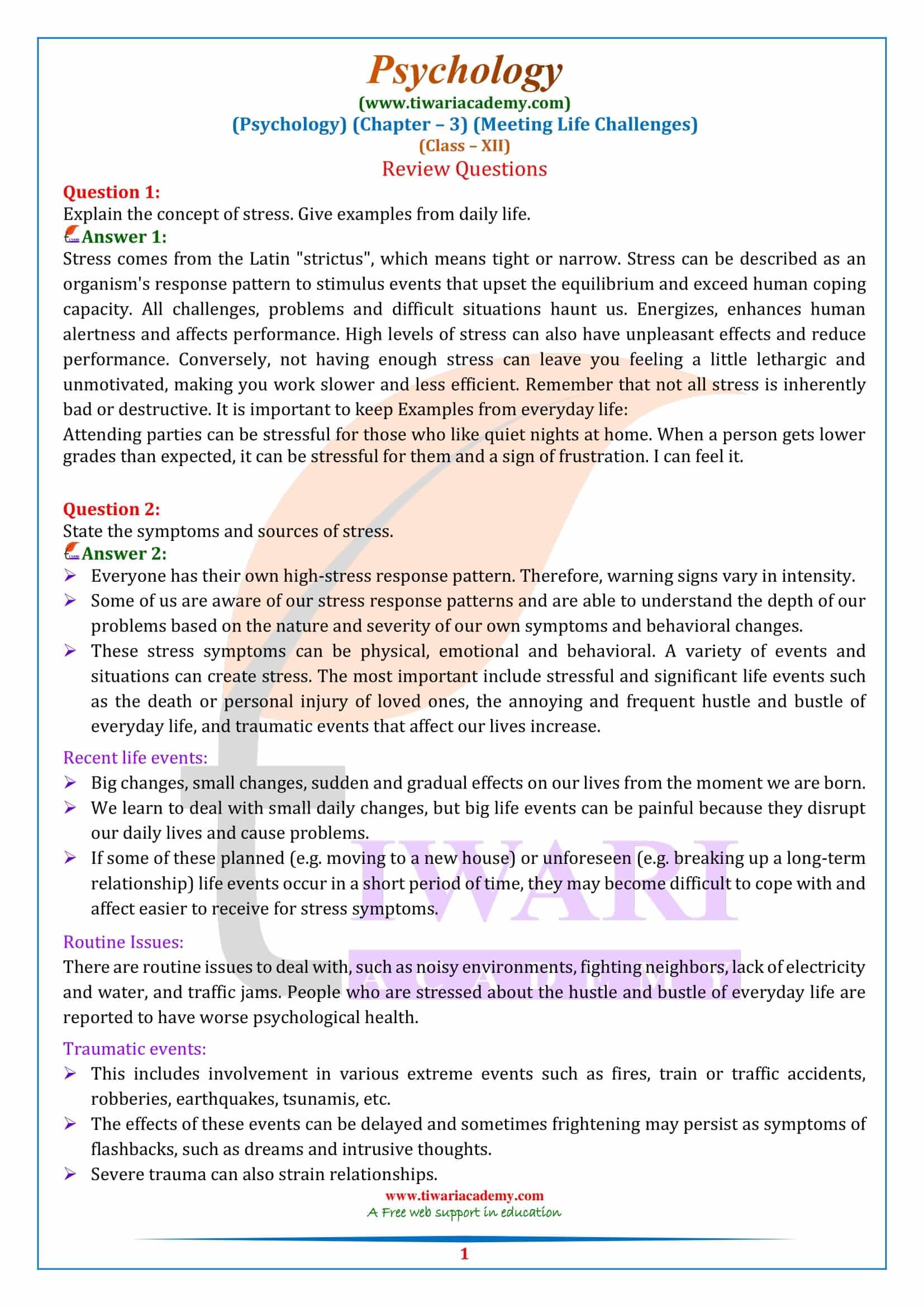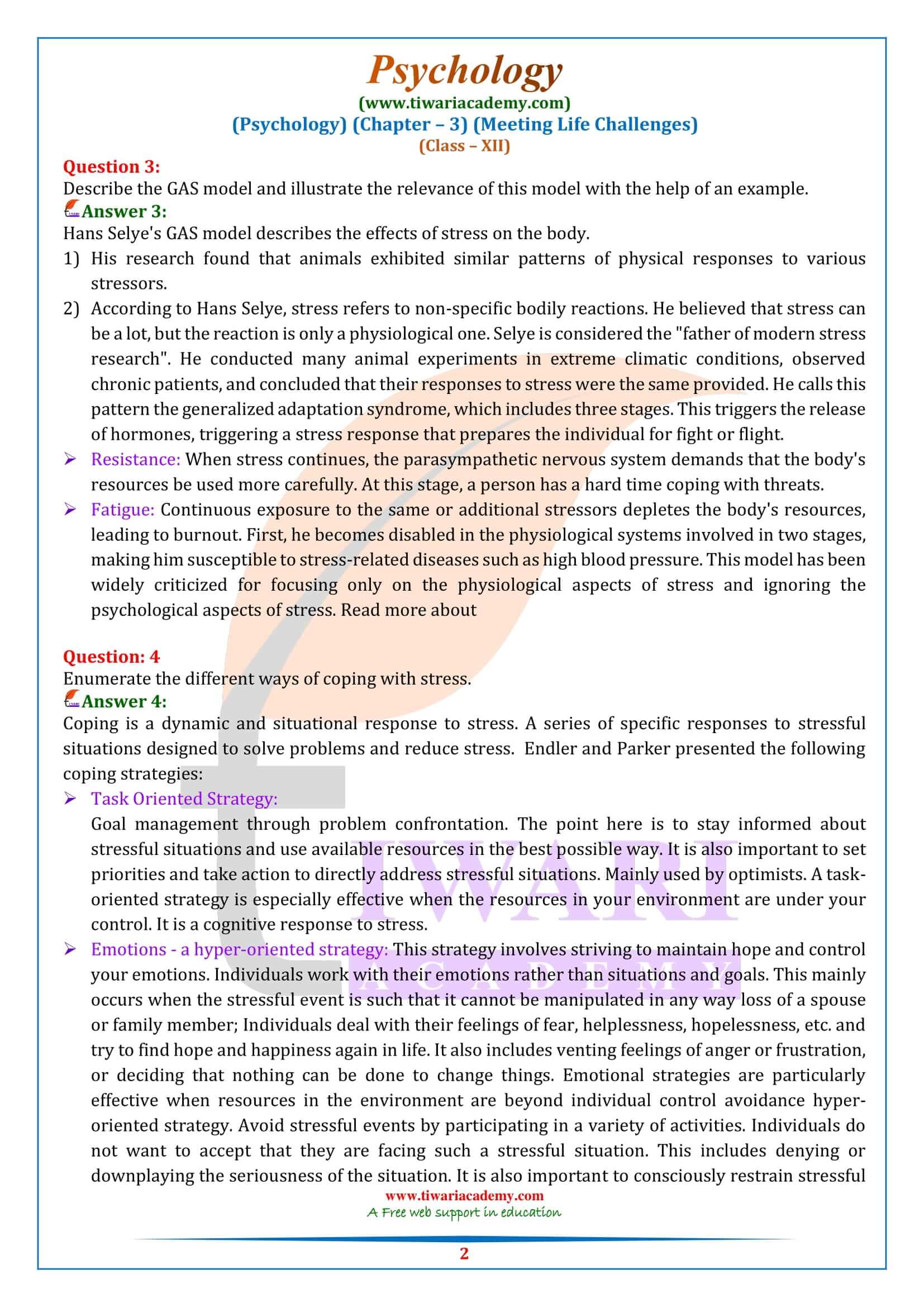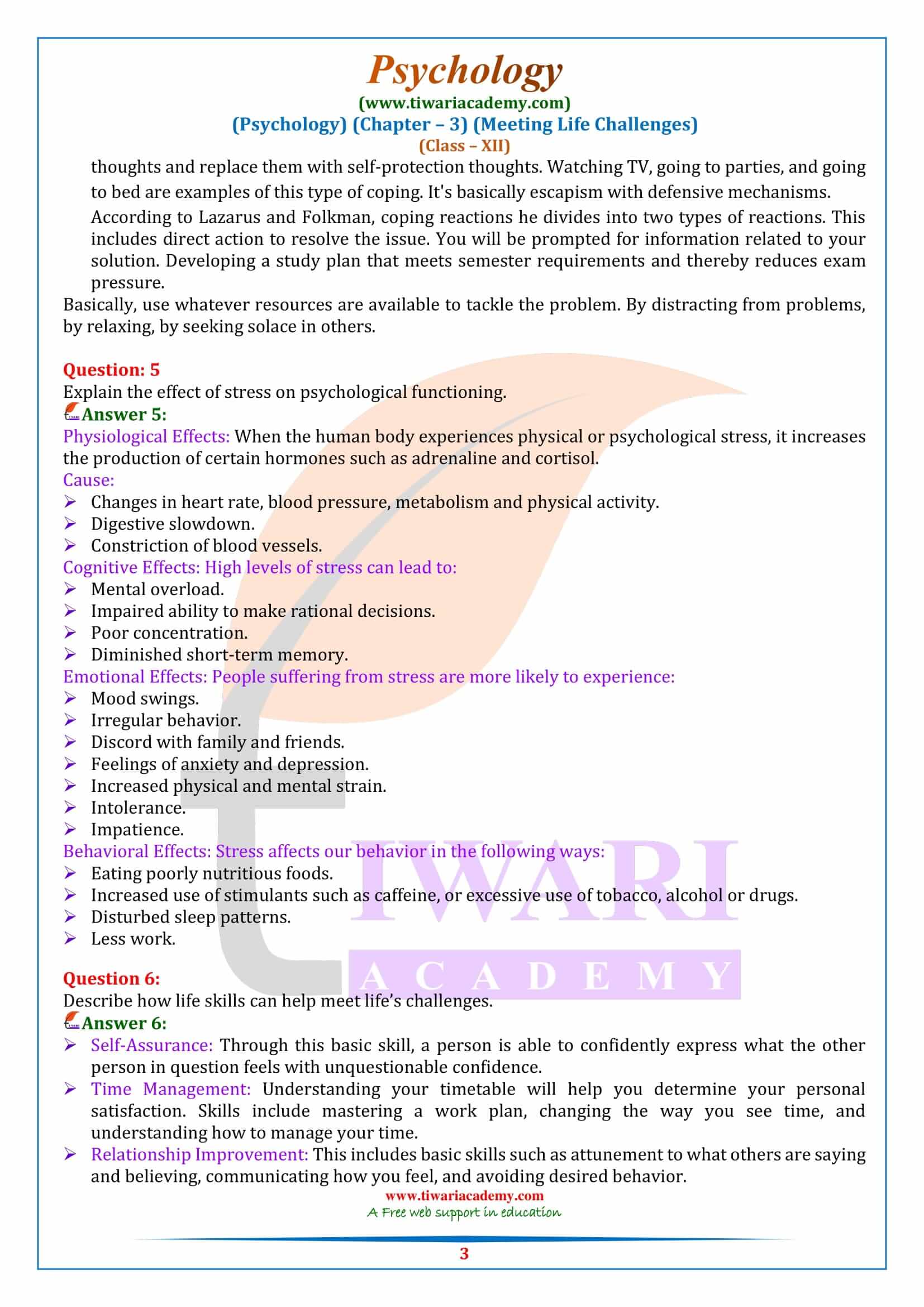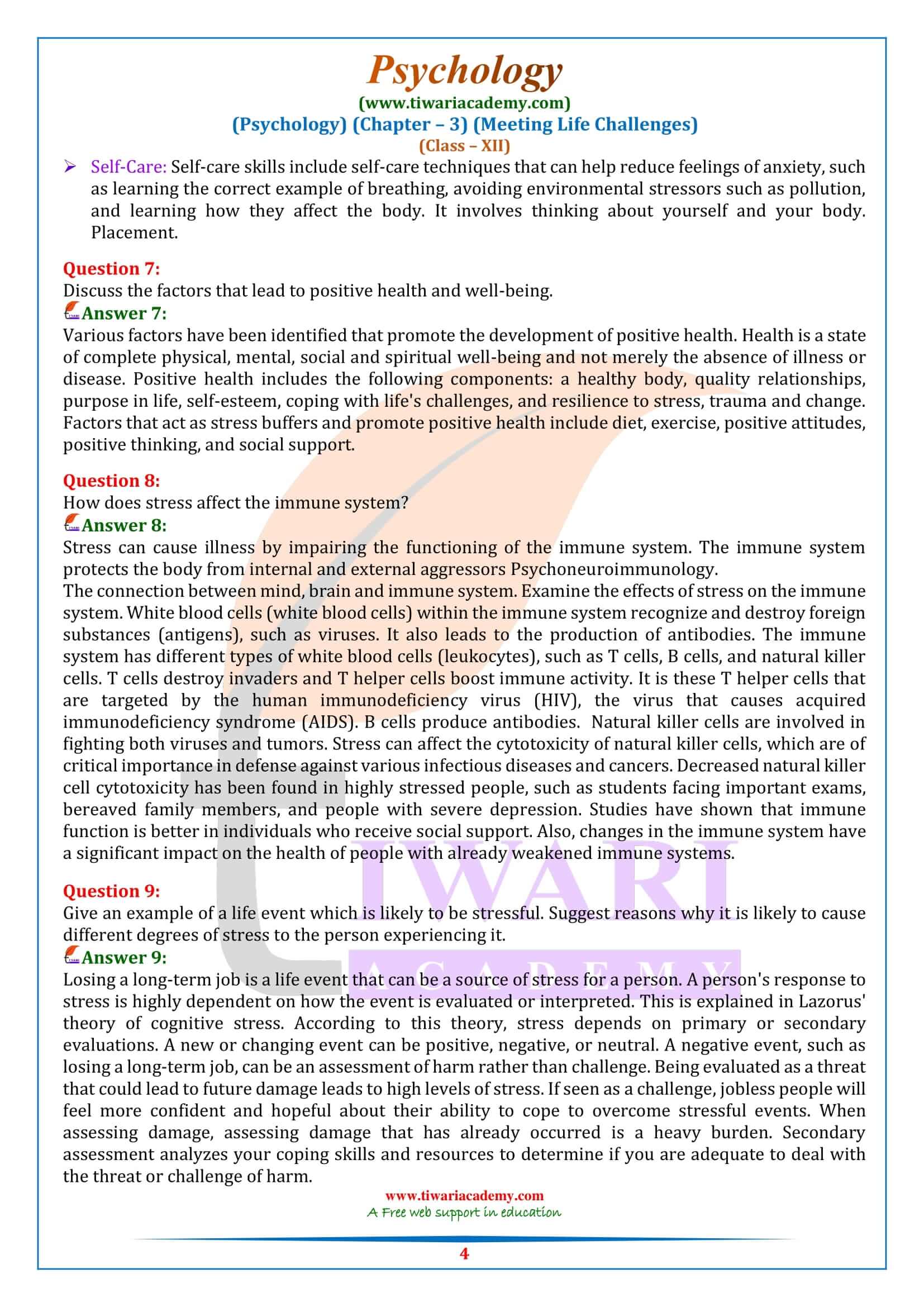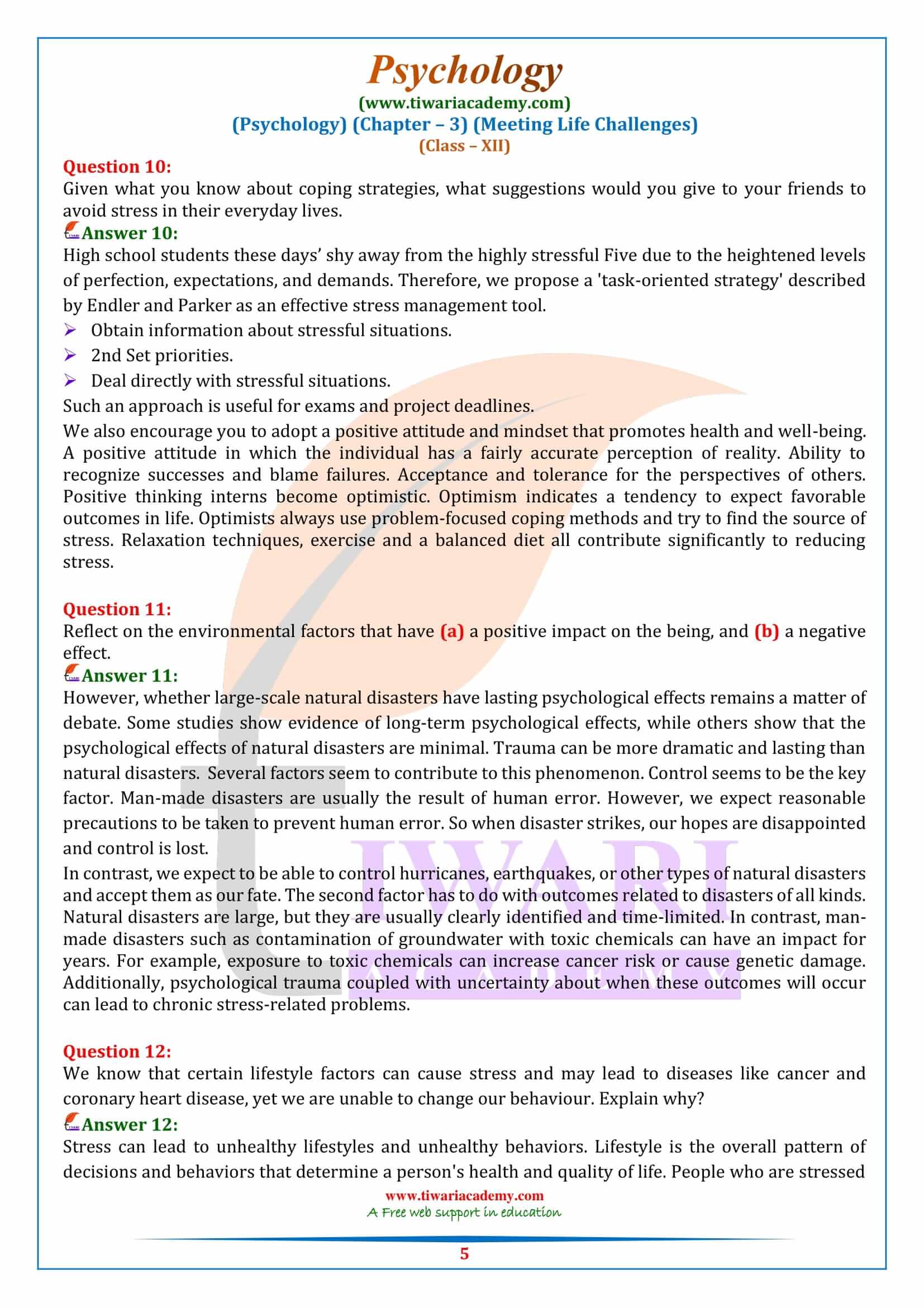NCERT Solutions for Class 12 Psychology Chapter 3 Meeting Life Challenges exercises question answers and important questions designed for new session 2025-26. Students of 12th Psychology can prepare the subjects with the help of extra questions and MCQ given here for chapter 3.
NCERT Solutions for Class 12 Psychology Chapter 3
Class 12 Psychology Chapter 3 Meeting Life Challenges Question answers
Explain the concept of stress. Give examples from daily life.
Stress comes from the Latin “strictus”, which means tight or narrow. Stress can be described as an organism’s response pattern to stimulus events that upset the equilibrium and exceed human coping capacity. All challenges, problems and difficult situations haunt us. Energizes, enhances human alertness and affects performance. High levels of stress can also have unpleasant effects and reduce performance.
Conversely, not having enough stress can leave you feeling a little lethargic and unmotivated, making you work slower and less efficient. Remember that not all stress is inherently bad or destructive. It is important to keep Examples from everyday life:
Attending parties can be stressful for those who like quiet nights at home. When a person gets lower grades than expected, it can be stressful for them and a sign of frustration. I can feel it.
Describe how life skills can help meet life’s challenges.
- Self-Assurance: Through this basic skill, a person is able to confidently express what the other person in question feels with unquestionable confidence.
- Time Management: Understanding your timetable will help you determine your personal satisfaction. Skills include mastering a work plan, changing the way you see time, and understanding how to manage your time.
- Relationship Improvement: This includes basic skills such as attunement to what others are saying and believing, communicating how you feel, and avoiding desired behavior.
- Self-Care: Self-care skills include self-care techniques that can help reduce feelings of anxiety, such as learning the correct example of breathing, avoiding environmental stressors such as pollution, and learning how they affect the body. It involves thinking about yourself and your body. Placement.
Discuss the factors that lead to positive health and well-being.
Various factors have been identified that promote the development of positive health. Health is a state of complete physical, mental, social and spiritual well-being and not merely the absence of illness or disease. Positive health includes the following components: a healthy body, quality relationships, purpose in life, self-esteem, coping with life’s challenges, and resilience to stress, trauma and change. Factors that act as stress buffers and promote positive health include diet, exercise, positive attitudes, positive thinking, and social support.
How does stress affect the immune system?
Stress can cause illness by impairing the functioning of the immune system. The immune system protects the body from internal and external aggressors Psychoneuroimmunology.
The connection between mind, brain and immune system. Examine the effects of stress on the immune system. White blood cells (white blood cells) within the immune system recognize and destroy foreign substances (antigens), such as viruses. It also leads to the production of antibodies. The immune system has different types of white blood cells (leukocytes), such as T cells, B cells, and natural killer cells.
T cells destroy invaders and T helper cells boost immune activity. It is these T helper cells that are targeted by the human immunodeficiency virus (HIV), the virus that causes acquired immunodeficiency syndrome (AIDS). B cells produce antibodies. Natural killer cells are involved in fighting both viruses and tumors. Stress can affect the cytotoxicity of natural killer cells, which are of critical importance in defense against various infectious diseases and cancers.
Decreased natural killer cell cytotoxicity has been found in highly stressed people, such as students facing important exams, bereaved family members, and people with severe depression. Studies have shown that immune function is better in individuals who receive social support. Also, changes in the immune system have a significant impact on the health of people with already weakened immune systems.
